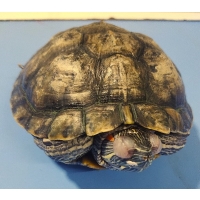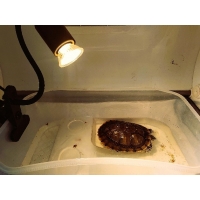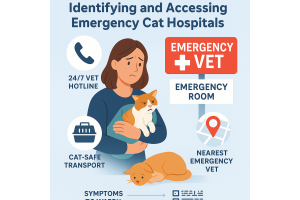A complete guide to give care to your sick turtle - By Dr. Bonu Swathi, MVSc. Clinical Veterinarian, Electronic city branch
- Identify the Illness
Turtles are usually low-maintenance pets, but when they’re sick, their behaviour can change. Here are some common signs that your turtle may be unwell:
- Lack of appetite or refusal to eat.
- Lethargy or unresponsiveness.
- Swollen eyes or discharge from the eyes or nose.
- Abnormal behaviour, such as swimming erratically or not basking.
- Swelling or deformities in the shell or limbs.
- Changes in the shell’s appearance (softness, cracks, discoloration, etc). If you’re unsure about the symptoms, it's best to consult a veterinarian
- Isolate the Turtle
Keep the sick turtle separate from healthy ones to prevent any potential spread of infection. Ensure they have their own space to rest and recover.
- Create the Proper Habitat
One of the first things you should do is ensure your turtle has a stress-free environment. A sick turtle needs the right temperature, humidity, and space to rest. Here's what you can do:
- Temperature: Ensure the tank's water temperature is within the ideal range for your species. For most aquatic turtles, water should be between 75-80°F (24-27°C), and basking areas should be 85-90°F (29-32°C).
- Lighting: Ensure proper UVB lighting, as it helps turtles process calcium and stay healthy. Keep the UVB light on for 10-12 hours a day.
- Clean Water: Make sure the tank is clean, and change the water regularly. Dirty water can contribute to infections or worsen the turtle’s condition.
- Provide Proper Diet
Proper nutrition is crucial for a turtle's recovery. If your turtle is refusing food, try offering high-nutrient foods like finely chopped leafy greens, small pieces of protein (like earthworms or insects), or soft pellets. You can also try soaking the food in water to make it more appealing.
- Offer easily digestible foods like chopped greens, earthworms, or soft commercial turtle pellets.
- Ensure the food is fresh and free of contaminants.
- Provide calcium supplements if necessary, especially if the turtle is weak or showing signs of shell softness or other bone issues.
- Hydration
If your turtle is sick, it may not be drinking enough water. To help prevent dehydration, offer fresh, clean water regularly. You can also gently soak your turtle in warm water (not hot) for about 15-20 minutes to help it rehydrate.
You may need to offer fluids using a syringe or dropper, especially if the turtle is not drinking on its own.
- Limit Handling
Avoid unnecessary handling unless needed for medical treatment. If you need to handle the turtle, ensure your hands are clean, and try to minimize stress.
- When to see a Vet
It’s important to know when to seek professional help. If you notice any of the following, it’s best to take your turtle to a vet:
- Persistent lack of appetite for more than a few days
- Discharge from the eyes, nose, or mouth
- Swelling or visible injuries
- Difficulty breathing or abnormal swimming
- If your turtle is not recovering with at-home care
A reptile vet will be able to diagnose the issue and offer proper treatment.
- Prevent Future Illness
Once your turtle has recovered, it's crucial to take steps to prevent future illnesses:
- Regular tank cleaning to avoid bacteria build-up.
- Proper diet that includes a variety of nutritious food.
- Consistent temperature and lighting to support overall health.
- Regular check-ups with a reptile vet for general wellness.
Conclusion:
Taking care of a sick turtle requires patience, attentiveness, and the right environment. By following these tips, you can help your turtle recover and stay healthy for years to come. Remember, if you're unsure, always seek professional help to ensure your turtle gets the care it deserves.
Call to action:
Have you ever cared for a sick turtle? Share your experiences or ask any questions if so! We’d love to hear how you’ve helped your shelled friend get back to health.









